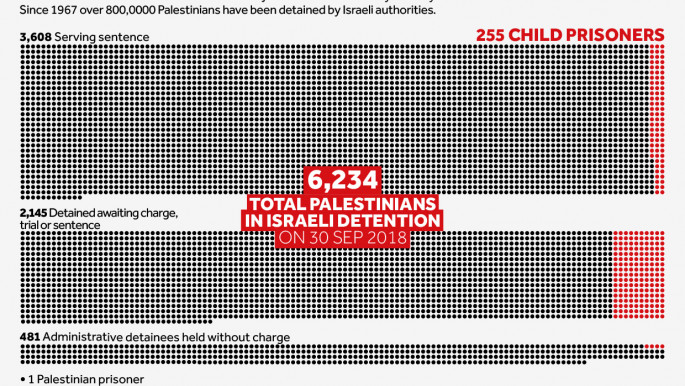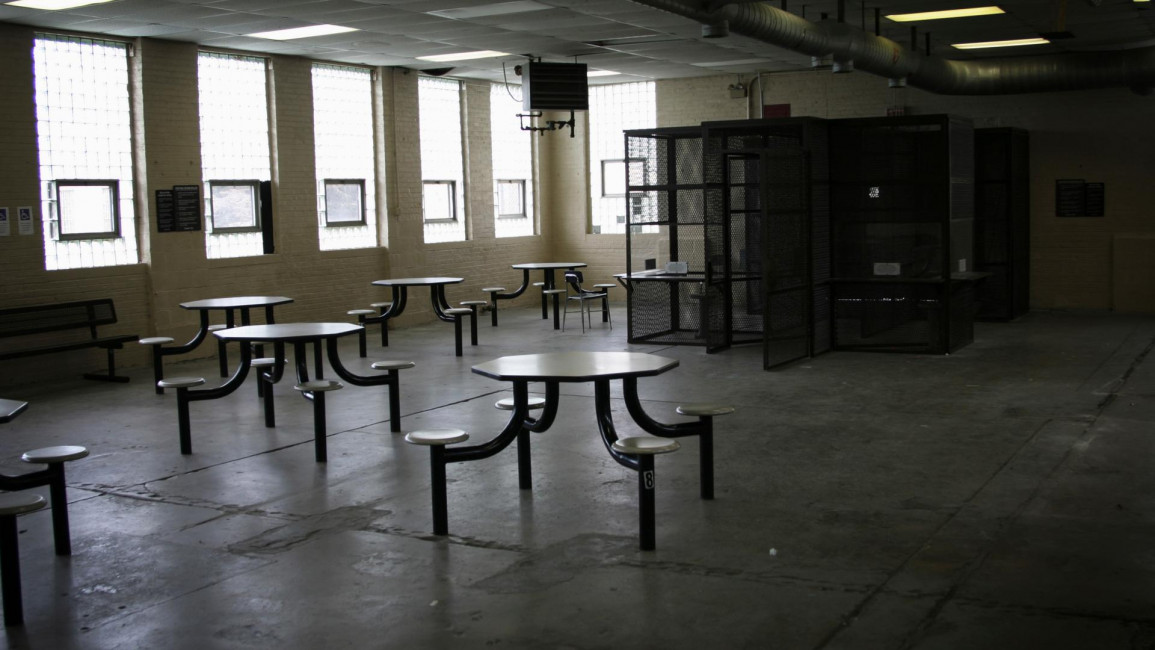Palestinian detainee's health 'deteriorating' amid hunger strike
A Palestinian detainee has been refused release from administrative detention, despite his health seriously deteriorating due to an ongoing hunger strike of more than 70 days.
Maher Akhras, 49, and a father of six from the occupied West Bank city of Jenin, is currently in administrative detention without charge or trial.
He is currently on his 72nd day of hunger strike in protest of his imprisonment.
Ex-Prisoners Commission, a Palestinian prisoners rights group, has expressed concern for his health.
Commission spokesman Hasan Abed Rabbo told Palestinian Authority’s news agency, Wafa, that Akhras has entered a grim period with a weight loss of 20kg and is visibly weak.
He is also suffering from occasional loss of consciousness as a result of his hunger strike.
Abed Rabbo said that the Israeli Prison Services refused to release Akhras despite an Israeli High Court ruling.
The ruling only agreed to freeze the administrative detention order against Akhras but not cancel it or secure his release, which was rejected by the detainee.
Akhras was detained several times by Israeli forces, first in 1989, in 2004, and then in 2009 when he was kept in administrative detention for 16 months.
He was detained again in 2018 and placed in prison for 11 months before he was released.
His last spell in detention was in July when he started his open-ended hunger strike against his continuous administrative detention.
Systemic prison racism
Israel's administrative detention system allows for the internment of prisoners for renewable periods of up to six months each, without bringing charges.
Israel says the procedure allows authorities to hold suspected militants and prevent attacks while continuing to gather evidence, but critics and rights groups say the system is abused.
Israel's prisoner population currently includes around 5,700 Palestinians, including 200 children, 44 women, five members of the Palestinian Legislative Council, and 27 journalists.
Around 470 Palestinian prisoners are held in "administrative detention" without charge or trial, according to reports.
Israel has illegally occupied the West Bank since 1967 and is accused of various abuses against Palestinian civilians.
In April, the UN Human Rights Council and the Red Cross urged Israel to release vulnerable prisoners, saying that they were in danger of contracting coronavirus, although there was no Israeli response.
Follow us on Facebook, Twitter and Instagram to stay connected



